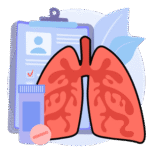Anxiety often arises from specific triggers that can intensify stress and impact daily life. Recognizing these triggers is the first step toward effective management. By identifying patterns and applying coping strategies, individuals can reduce the impact of anxious feelings and regain a sense of balance and control.
Common Anxiety Triggers
Anxiety triggers vary significantly between individuals, but certain patterns emerge frequently in clinical settings. Work-related stressors often contribute to anxious feelings, particularly deadline pressures, performance evaluations, and workplace conflicts. Social situations also trigger anxiety, including public speaking, meeting new people, or attending large gatherings.
Life transitions create further triggers for some people. Moving to a new location, starting a new job, relationship changes, or major life decisions can all prompt anxious feelings. Technology and social media increasingly serve as modern triggers, with constant connectivity and comparison contributing to persistent worry patterns.
Personal Triggers
Identifying your specific anxiety triggers requires systematic observation and documentation. Keep a detailed journal for several weeks. In the journal, record when anxious feelings occur, what situations preceded them, and the intensity of your symptoms. Note physical sensations, thoughts, and environmental factors present during episodes.
Pay attention to patterns in your anxiety responses. Some triggers may be obvious and immediate, while others operate subtly over time. Certain locations, people, topics of conversation, or times of day may consistently correlate with increased anxiousness. Physical symptoms like rapid heartbeat, sweating, or muscle tension often provide early warning signs of activation. Professional assessment can help identify triggers that may not be immediately apparent to you.
Management Strategies
Once you identify your anxiety triggers, several evidence-based strategies can help manage your response:
- Deep Breathing Techniques: Practice deep breathing techniques to provide immediate relief during anxious episodes.
- Cognitive Restructuring: Challenge negative thoughts that often accompany triggers. Ask yourself what you would tell a friend experiencing similar concerns, and apply that same compassionate reasoning to your situation.
- Progressive Muscle Relaxation: Reduce physical tension by tensing and releasing muscle groups, starting with your toes and working upward through your body.
- Gradual Exposure: Slowly confront triggers in a controlled manner. Begin with less threatening versions of your triggers, and progress toward more challenging situations as your confidence increases.
Implementing these strategies consistently can build resilience and improve your ability to manage anxiety in immediate and long-term situations.
Professional Help
Professional intervention becomes helpful when anxiety interferes with daily functioning, relationships, or well-being. If your anxious feelings persist for six months or longer, occur frequently without clear triggers, or intensify over time, professional evaluation can provide valuable guidance. Physical symptoms that accompany anxiety, such as panic attacks, insomnia, or digestive issues, may require medical assessment. Mental health professionals can distinguish between normal anxious responses and anxiety disorders that benefit from structured treatment approaches.
Therapy modalities like cognitive-behavioral therapy help with managing anxiety. Medication management may also be beneficial for certain individuals when combined with therapeutic interventions. Professional providers can develop comprehensive treatment plans tailored to your specific patterns and triggers.
Schedule Your Anxiety Consultation Today
Recognizing and managing anxiety triggers requires patience, practice, and often professional support. The strategies outlined here provide a foundation for understanding your anxiety patterns and developing effective coping mechanisms. Persistent or severe anxiety benefits from comprehensive professional evaluation and treatment. For concerns about constant worry or anxious feelings, contact a mental health professional near you to schedule a consultation. Professional guidance can help you develop personalized strategies for managing your specific triggers while addressing underlying patterns.















